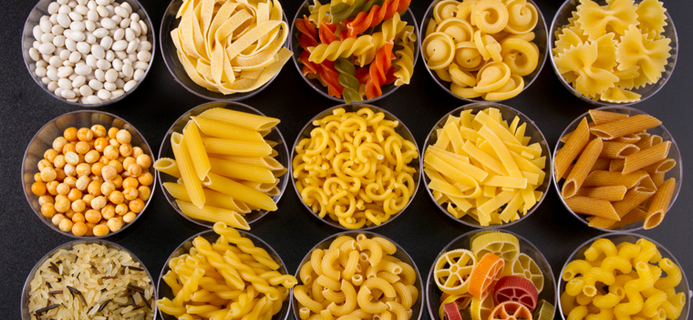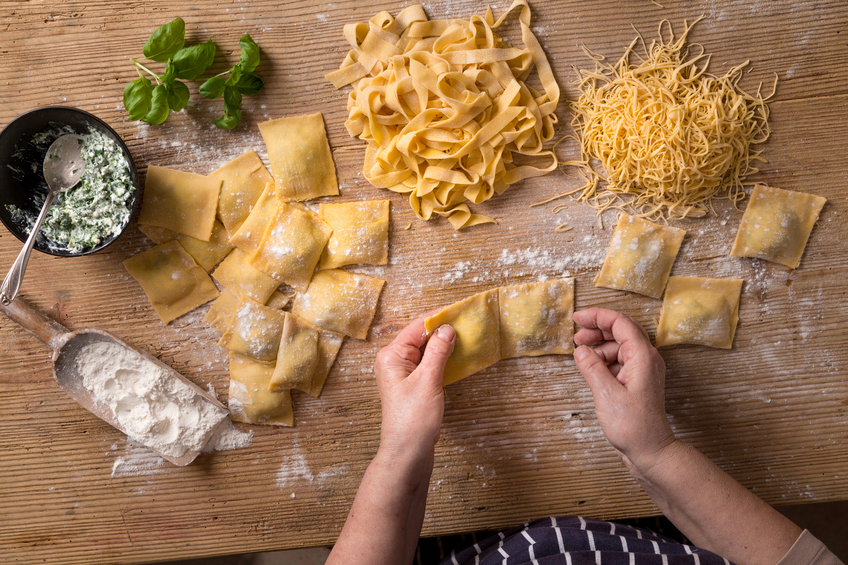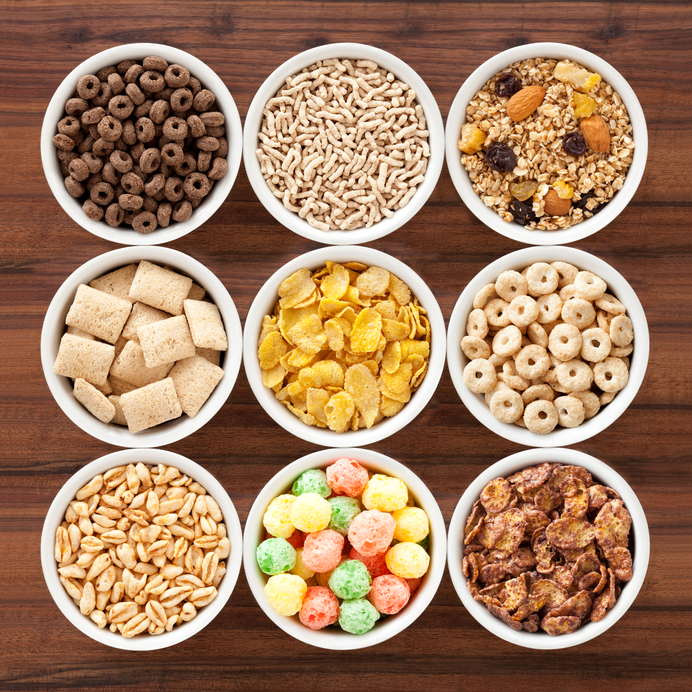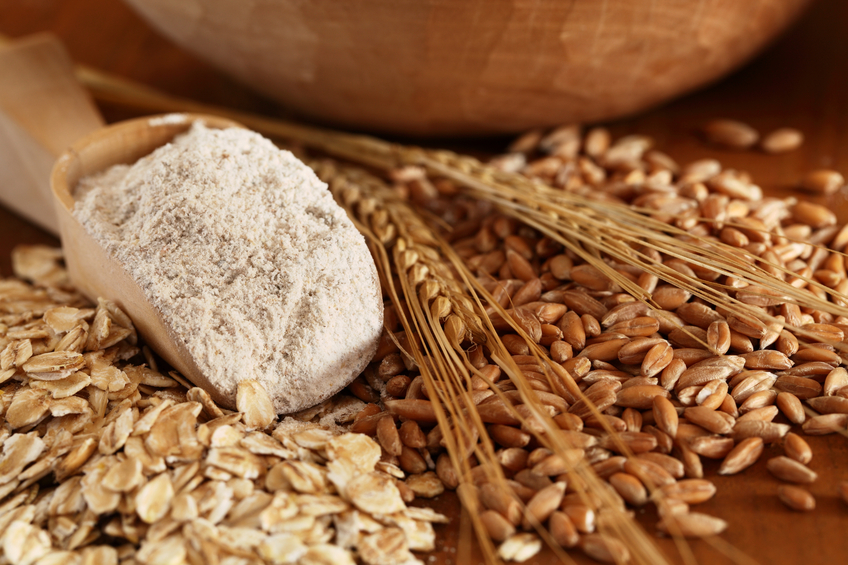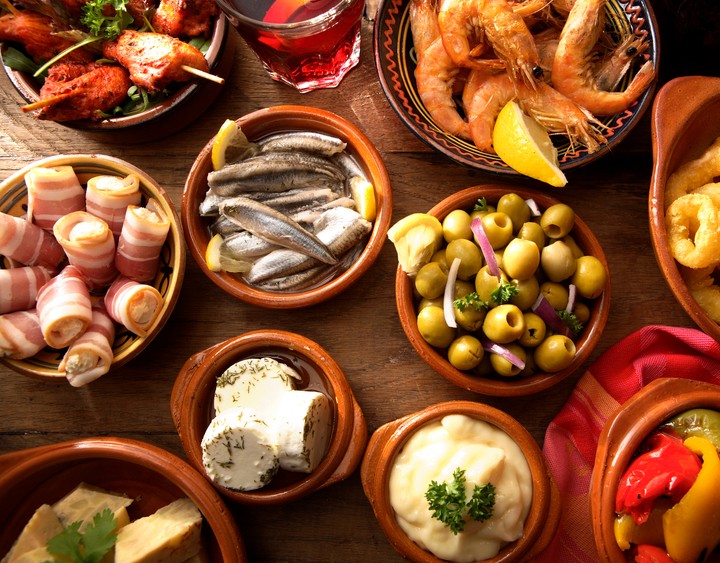New research has shown that those with the healthiest hearts in the world eat mostly carbohydrates. In his latest book The Mindspan Diet, biologist Preston W. Estep explains how a high-carb diet lowers the risk of dementia and cognitive decline
In the Bolivian Amazon are the Tsimane people, who have been found by researchers to have the healthiest arteries of any population studied yet. The South American tribe follow a carbohydrate-based diet, consisting of rice, plantain, corn, nuts and fruit. They eat little protein and fat, whilst spending most of every day hunting, fishing, farming and gathering.
Carbs are the best foods for achieving maximum lifespan and performance of the mind
Scientists examined hundreds of men and women across 85 villages, and found that almost nine out of 10 had clear arteries showing no risk of heart disease. The study, published in The Lancet, showed that even the elderly remained in staggeringly good health, with one 80-year-old had arteries resembling those of Americans in their mid-fifties. Similar scans of nearly 7,000 Americans in a previous study showed that only 14 per cent had no risk of heart disease.
Carbs can get a bad wrap, but this research points to their potential for long-life health. Similarly, carbs are the best foods for achieving maximum mindspan (lifespan and performance of the mind) according to a new book, from leading ageing expert Preston W. Estep, called The Mindspan Diet. It may sound like a message transmitted from aliens, however, Preston W. Estep has identified those with the healthiest minds eat substantial amounts of carbs. He calls these people the ‘Mindspan Elite’; that’s those living in countries with the highest longevity levels and lowest rates of dementia including Japan, Mediterranean France, and Italy.
Dementia is the leading cause of death among woman in the UK, and this is set to rise
Record numbers of people are experiencing cognitive decline. Dementia is the leading cause of death among woman in the UK (13.3 per cent) and, according to Alzheimer’s Society, we, along with the Netherlands and U.S., have good longevity and healthcare but are ironically at the most risk of mental impairment as we age. The number of cases of dementia, currently at 850,000 in the UK, is only set to rise in richer countries 116 per cent by 2050, and 227 per cent in the rest of the world, according to the Alzheimer’s Society, unless we start reversing the causes.
The countries with the best maintained cognitive health eat low levels of red meat, sugar, and milk, and more carbs and legumes
Shining the light on substantial evidence gathered over the years, Preston W. Estep, who is Director of Collections and Director of Gerontology at the Harvard Personal Genome Project says mind health depends on the cardiovascular system being in good shape, allowing blood flow to the brain. Similarly, poor functioning kidneys, lungs, and liver problems, including diabetes and high cholesterol, are risk factors for mental decline. Although genes play an important part, environmental factors, including diet, can combine to ‘switch on’ the genes that can lead to cognitive decline. Therefore, it is essential to look at our diet to slow down ageing.
Countries with low mental decline eat mostly carbs
The Japanese, French, and Italians’ traditional cuisine couldn’t be more different. The Japanese love their green tea, the French their cheese, and the Italians their focaccia bread. But they share some diet trains too, such as:
- Less red meat and added sugar
- Less liquid milk
- More beans and legumes
- Varied fat consumption
- Alcohol only with meals
- A lot of refined carbs
In Japan refined white rice is the base of meals, and some brown rice. In other Mediterranean countries, they eat many kinds of breads and pastas with almost every meal – and most are made with refined wheat flour. Overall, the Mindspan Elite, says Prof. Estep get over 50 per cent of their daily food energy from refined starches and oils, sources that are widely considered to be nearly ‘empty’ calories- calories with comparatively low levels of vitamins, minerals, and fiber. However, their obesity levels are much lower, with just five per cent in Japan, compared to 40 per cent in the U.S.

But, before you run to the supermarket in joy stacking your trolley with white bread and iced buns, there are a few points to remember about the best carbs you should be eating for your mindspan. An easy way to remember them is with the acronym LIGIR: low iron and glycemic index (GI) refined carbs.
-
Low GI carbs
One primary thing that separates ‘good’ carbs from ‘bad’ is the length of time between when the carb is eaten and when it reaches the peak level in the bloodstream. The faster this is, the more dramatic the effect (usually bad) this carb has on your body.
This is measured through the glycaemic index (GI). GI is a score of blood sugar level, and foods are ranked based on how they compare to a reference food (glucose or white bread). A food with high GI raises blood glucose levels more than a food with medium or low GI. Eating even moderate amounts of high GI food can have consequences of rapid spike of glucose in the blood-stream that triggers the release of the hormone insulin. Insulin unlocks and opens doorways into cells so they can absorb glucose. When glucose is rapidly taken in by the cells, this leads to feeling famished and fatigued, and leave you craving sugar. When this frequently happens over time, your regulatory system can become exhausted and this can lead to insulin resistance and type 2 diabetes.
Confusion leads to people tossing carbs aside all together, despite evidence showing carb-rich diets are healthy for the mind
A lot of common refined carbs have high GIs, so diet gurus often recommend whole grain foods, despite these having an even higher typical GI. All this confusion leads to people ending up tossing carbs aside all together, forgetting that pasta and common varieties of rice have lower GIs than whole grain foods, and the consistent evidence that the Mindspan Elite with carb-rich diets have the lowest death rates from all causes (see below on the best carbs to choose).
2. Non-enriched iron carbs
In the US, about half of dietary iron is obtained through ‘iron-fortified’ grain products. Iron fortification in the US and the UK began in the early 1940s, with the best of intentions, and its these countries where the largest studies of vegetarian diets have been. Iron fortification has undermined the benefits of vegetarian diets in people who eat typical amounts of refined grain foods, and therefore has greatly perverted deductions about disease risk and mortality in vegetarians.
Iron deficiency poses no clear health risk to adults, but 30% of our wheat products contain added iron
Grains have received a negative response, because most of the products in the US are iron-enriched fast carbs. American rice is not the same as the Japanese, Prof. Estep explains, US pasta is not the same as the Riviera regions, and wheat is processed mostly into breads and breakfast cereals overloaded with iron. About 30 per cent of wheat flour worldwide is fortified.
A lot of people think carbs cause diabetes, but iron is a bigger risk factor for the development of diabetes and triggers an even greater insulin release than high GI carbs, says Prof. Estep. Insulin response (per gram of food) – that’s the rate that your blood sugar rises when you eat – for red meat is almost double that of fish, and more than double that of pasta- so excess iron is the hidden risk for diabetes in your diet, not good carbs or gluten. What’s more, he explains, iron deficiency poses no clear health risk to adults.
The problem isn’t just with adults. Most infant formulas contain up to ten times more iron than found in breast milk, which explains why formula-fed babies have significantly higher body iron stores and suffer more sudden infant death syndrome.
When buying rice, the typical range of iron in non-enriched rice is 0 to 2 per cent of the daily value in 150 calories, compared to iron-enriched rice, which tends to have a value of 6 to 8 per cent.
MORE: 9 healthy fats to help you live longer
3. Carbs with gluten
Gluten is a serious problem for just one per cent of people who have ceoliac disease, which causes potentially life-threatening intestinal damage. ‘Gluten free’ is the current diet trend to avoid bloating, joint pain, weight gain, and even some people suggest Alzheimer’s. But iron is a proven driver of gut inflammation, infection, and even cancer. If you’re living in a country that enriches more wheat with iron (not the Mindspan Elite), it’s not surprising eliminating these products from your diet makes your gut feel better, but try eating wheat products free of enriched iron and you might feel better too, says Prof. Estep.
The problem with those who think they have a gluten sensitivity, is they go to look for wheat alternatives, which often have glycaemic index (GI) scores far higher than standard semolina wheat pasta.
4. Refined carbs beat wholegrain carbs
Leaders in mainstream nutrition credit longevity benefits of Mediterranean cuisines to whole grains, but until the past few years, many inhabitants there had rarely seen whole wheat pasta, and it is still rare. Similarly, most of the rice Japanese eat is white, and in Okinawan, they traded their sweet potato staple, which supposedly anchors their cuisine, over sixty years ago.
most commercial whole grain foods are made of flours ground so small that most potential health benefits are lost
The primary difference between most whole grain foods and refined grain foods, is that whole grain foods retain more of the fibrous bran and germ, says Prof. Estep. But most commercial whole grain foods are made of flours ground so small that most potential health benefits are lost, and the remainder are questionable. In contrast, a grain like white rice isn’t a whole grain, as its outer bran and germ have been removed, and consist of the intact starchy ‘endosperm’, which remains dense. Many types of intact white rice have much lower GIs than foods made of whole grain flours, such as basmati rice.
Are whole grain foods better or worse for health than the refined grains? We don’t know, but we do know the mindspan leaders of the world eat the latter.
So, what carbs CAN I eat?
- Choose low-GI rice and pasta. Your choices depend on your level of activity and other foods in the meal, but a GI below 55 is best and above 75 is bad. The best choices of rice are parboiled long-grain rice, basmati white rice, parboiled medium-amylose rice (thai jasmine), long-grain brown rice, wheat pasta (semolina), and cous cous (semolina).
- Pasta should be al dente, and best cooked and refrigerated for the next few days. The cycles of heating and cooling promote the formation of digestion-resistant starch. Don’t eat more than 200 grams of cooked pasta per person as a serving size.
- Use semolina flour, whole wheat flour, or white, unbleached, non-enriched (with iron) flour as this is lowest GI.
- Rustic, dense, and chewy sourdough breads. Cook breads from scratch if you can, such as a basic sourdough semolina bread, pumpkin semolina bread, or basic focaccia, all using flour that is not enriched with iron.
- Refined barley is like white rice but has much more fibre. Barley has the lowest GI of grains, and takes about 40 minutes to cook.
- Oats shouldn’t be eaten more than three times a week, and should be mixed with a majority of rice, as oats have a high content of polyunsaturated fatty acids and iron. Even better, replace your oatmeal with pearled barley or a barley and rice mix.
- Sweet potatoes, beans, lentils, peas, chickpeas, and hummus are excellent sources of LIGIR carbs (see above for what these are) so eat them often.
How to eat your carbs for maximum benefit?
Preparation methods promote conversion of starches into indigestible form. Steaming or boiling followed by cooling and refrigeration help boost levels of digestion-resistant starches. Parboiled rice has among the lowest GI score because it is precooked and the cooled and dried prior to sell.
Slowing down and leisurely eating meals also reduces sugar spikes, hunger pangs, and cravings.
Meals in Japan are methodologically eaten, and the Japanese have a traditional saying ‘Hara hachi bun me’, which translates to ‘eat until you are 80 percent full’. The idea is that you eat slowly enough that your mind can sense the fullness of your belly. They also eat their carbs later in their meal. A minimal traditional meal is soup, rice, pickles, and green tea, and if it’s a bigger meal, vegetables, fish, and meat, will be eaten before the rice. Similarly, the Mediterranean eat olives, soups, salad, or cheeses before their main meal.
Other diet tips to help prevent cognitive decline
- Limit iron. If you’re a man or woman in the age of menopause, you should measure your body iron stores. Unless a test results indicate you are iron-deficient, you should not take supplements. Consider donating blood, not cooking in cast-iron cookware, and let water run for a bit before drinking if you have older metal pipes.
- Limit red meat. The best nutrition for mental longevity is a mostly vegetarian diet, with little or no read meat. Protein sources in order of primary consumption should be grains, legumes, vegetables, fish, eggs and cheese, poultry, red meat.
- Cut out dairy – ditch milk and minimize ice cream, yoghurt, cottage cheese and other amounts of lactose (milk sugar). Cheese, sour cream, butter, and other dairy products with trace amounts of lactose are fine in moderation.
- Feed your brain with fish – the Japanese eat fish once of less a day in small moderate servings, not large quantities in single meals. For example, pickled herring once a day, or a dish with sardines or anchovies once a week. These are lower in mercury. Vegans and vegetarians can take DHA or EPA supplements.
- Drink coffee, tea, or red wine with meals. These inhibit the absorption of iron (and other minerals, so don’t overdo it). Other types of alcohol promote iron absorption.
- Limit sugar, and when choosing fruit, go for non-sweet fruits, such as squash, tomato, cucumber, and bell pepper. There is a lot of fructose in sweet fruits.
- Take a B vitamin (containing at least folic acid or folate, B6 B12, and niacin), and a D vitamin supplement, at least occasionally. If you are indoors a lot of the time, take D vitamin daily.
Remember, to live a life as long as Japanese women, who life expectancy is 86.4, about 45 to 60 percent of your dietary energy should come from good carbs. Mostly from vegetables (yes, even the macronutrient that provides energy in most mainstream veg we are advised to eat is carbohydrate) and LIGIR carbs (low iron and glycemic index (GI) refined carbs). These include high-amylose white rice (not enriched with iron), sweet potatoes, pasta, beans, lentils, peas, chickpeas, and hummus.
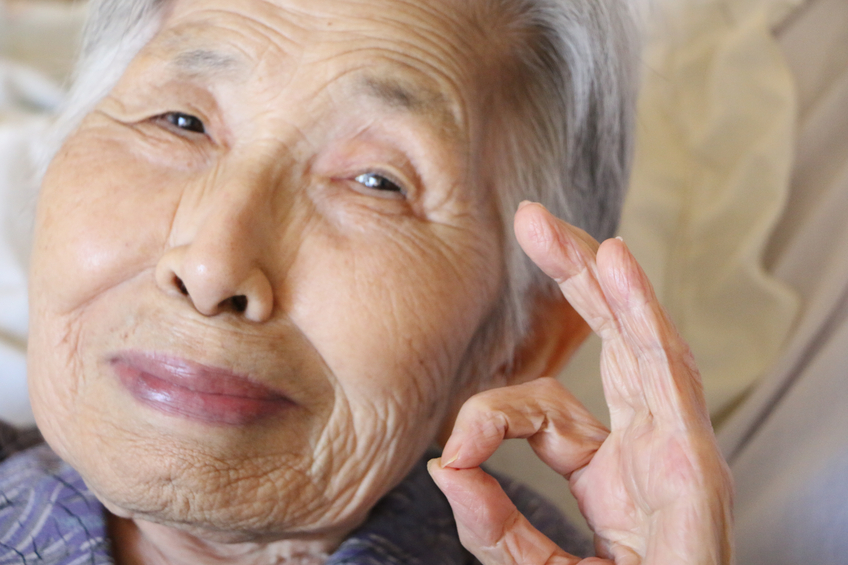
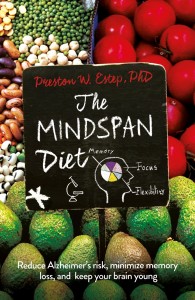
is £11.99 on Amazon and was published on November 3rd.
MORE: Do you really need to give up gluten?
Like this article? Sign up to our newsletter to get more articles like this delivered straight to your inbox.



